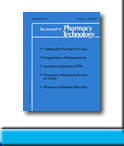 |
 |
Dofetilide Overdose—A Case of Unintentional Ingestion Due to Misinterpretation of the Dose
Praneet S Iyer, Robert J Neufeld, Theresa Giambra, and Nicholas B Norgard
To request full article click here.
Objective: To report a case of unintentional overdose of dofetilide due to patient misinterpretation of the prescribed dose.
Case Summary: A 50-year-old white male unintentionally ingested dofetilide 5000 μg instead of the prescribed dose of 500 μg because of a simple mathematical calculation error. The patient was given activated charcoal in the emergency department and also received 1 dose of magnesium sulfate 2 g and 1 dose of potassium chloride 80 mEq by mouth. He was admitted to the intensive care unit for cardiac monitoring for 1 day and was discharged when his QT/QTc interval was stable.
Discussion: During recent years, studies have focused on errors that occur while medications are in the control of health care professionals. As health care delivery shifts from inpatient to outpatient settings, the burden of proper medication use also shifts from providers to patients. Low health literacy and lack of understanding of instructions have been cited as important root causes of medication errors in the outpatient setting. Effective communication with patients who have limited health literacy offers the potential to improve their understanding about their medical problems and treatments. Dofetilide, a class III antiarrhythmic agent, is highly regulated due to safety concerns. The drug is efficacious in the maintenance of normal sinus rhythm in patients with atrial fibrillation. Cardiac toxicity is of utmost concern when treating dofetilide overdose. The mainstay of treatment focuses on supportive care and prevention of drug absorption.
CONCLUSIONS: Medication errors will not cease to occur unless patients understand their dosing instructions and health care responsibilities. This case highlights the need for the monitoring of patient understanding, especially when drugs with high safety risk are being used.
J Pharm Technol 2012;28:258-63
To request full article click here.
|
|
|
||
|

